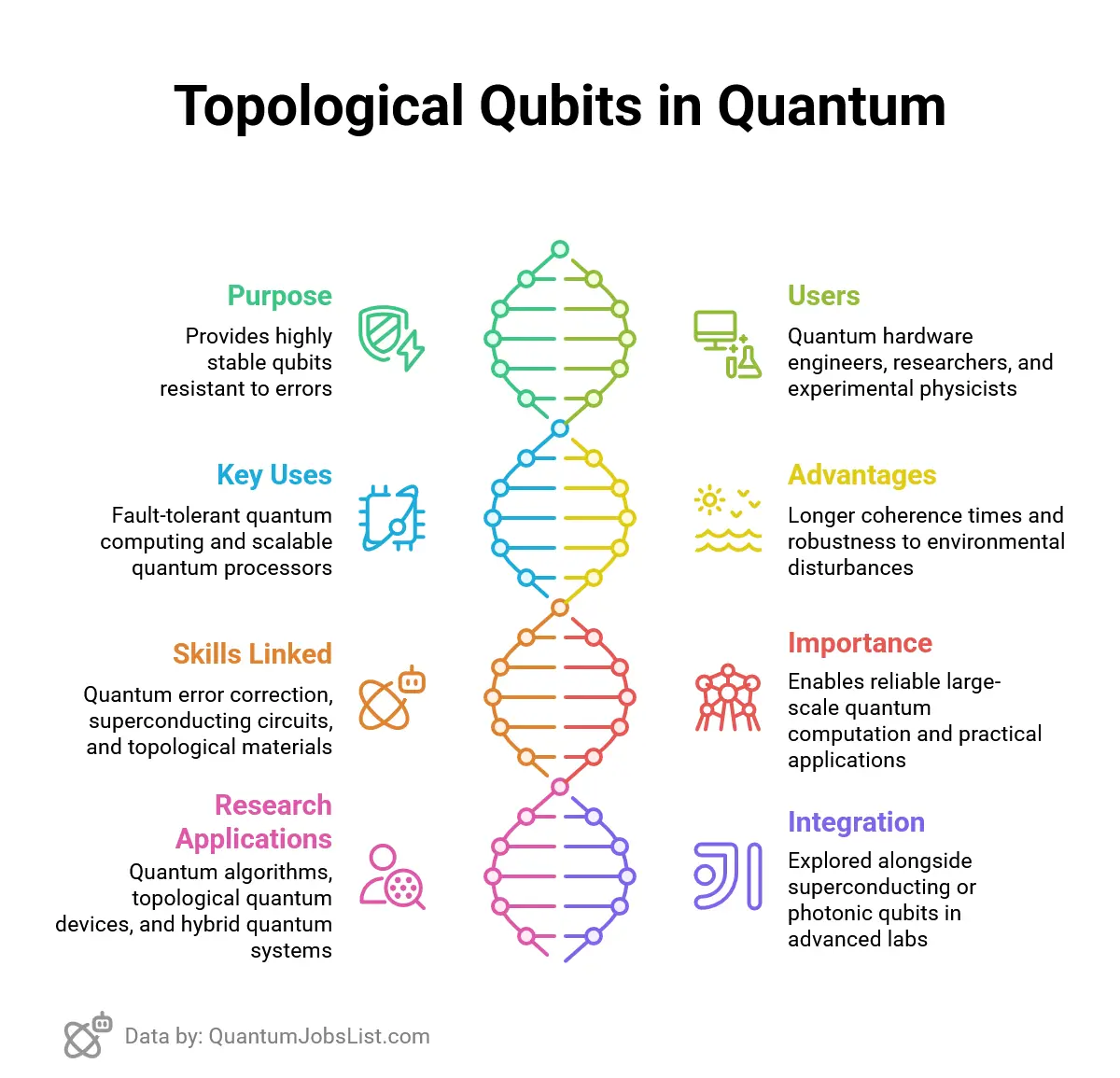Topological Qubits Jobs













































Search jobs
Know the Basics
An experimental type of quantum bit that's theoretically more stable, because quantum information is stored in the shape (topology) of exotic particles called anyons, imagine writing information in knots that can't easily untangle.
What exactly do topological qubit researchers do?
They are working to show that topological qubits can exist and function on real hardware. This involves studying exotic states of quantum matter and other innovations in experimental setups, as well as controlling anyons; The process will include theoretical calculations, ultra-low temperature experimental runs, and analyses of topological behavior. Collaboration with other condensed matter physicists will play a crucial role in defining cutting-edge research in topological matter and related innovations.
Nature isn't classical, dammit, and if you want to make a simulation of nature, you'd better make it quantum mechanical. Richard Feynman, Physicist

How much do topological qubit specialists earn?
Since this field is highly experimental and research-focused, most positions are PhD-level paying $90,000-130,000 a year for postdocs and $130,000-180,000 for research scientists. Senior researchers at Microsoft (the main company pursuing this) or academic institutions can earn $170,000-220,000+ a year. The field is smaller than superconducting or trapped ion, so fewer positions exist overall. You can learn more about Quantum Jobs Salaries.
What background do I need for topological qubit research?
For most, a PhD in condensed matter physics, theoretical physics, and or materials science that includes research on topological states of matter would be a requisite. A real PhD also comes with considerable quantum field theory knowledge and exotic quantum phases alongside topology. Researching and writing on Majorana fermions and other topological insulators, or the fractional quantum Hall effect territory and or the classic Hall effect will prepare you best for this highly desired position.
Which organizations are working on topological qubits?
Microsoft invests heavily in topological quantum computing within its Azure Quantum division and Station Q research labs. Some research on topological qubits is also done by university groups at TU Delft, Copenhagen University, and Purdue University. You can find jobs at Quantum Jobs List. Job opportunities, however, are much fewer for this type of qubit, as the research is still very nascent.
Why aren't there many topological qubit jobs available?
Topological qubits are mainly theoretical at this stage. All researchers are still trying to create stable anyons and prove topological protection in real systems; While practical qubits are promising, they will take years to develop. Most research is done in small teams, not large groups focused on commercialization.
Can I transition from other quantum hardware fields to topological qubits?
The foundation must be solid. Researchers using trapped ions or superconducting qubits aiming to transition to topological studies should concentrate on topological quantum field theory, and non-abelian anyons. While the shift is challenging, publishing work on topological states and engaging in related research can make it intellectually rewarding.
Quantum mechanics makes absolutely no sense. Roger Penrose, Physicist

.svg)

